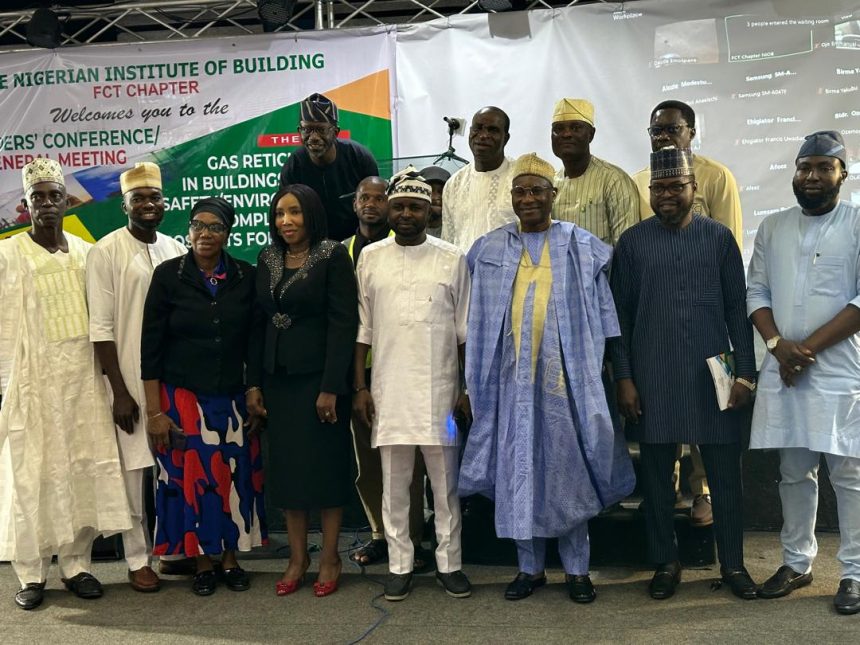… Advocates Gas Reticulation as Safer, Greener Power Source
The Nigerian Institute of Building (NIOB), FCT Chapter, has called for increased adoption of gas reticulation systems in buildings as a sustainable energy solution in Nigeria’s built environment.
This position was emphasized during its 2025 Builders Conference and Annual General Meeting held in Abuja, with the theme: “Gas Reticulation in Buildings: Design, Safety/Environmental Compliance, and Prospects for Builders.”
The event focused on promoting gas as an efficient, safe, and environmentally friendly energy source for the nation’s construction sector.
In his welcome address, NIOB FCT Chapter Chairman, Bldr. Usman Abdulmumin, described the theme as a continuation of last year’s discourse on energy transition in the construction industry. He noted that gas, which Nigeria possesses in abundance, offers a viable and sustainable alternative to traditional energy sources.
He emphasized that incorporating gas systems into residential, commercial, and industrial projects requires strict adherence to safety standards, design protocols, and environmental compliance, responsibilities entrusted to professionals and regulators within the built environment.

Chairman of the Nigerian Gas Expansion Programme, Prof. Mohammed Ibrahim, in his keynote address, stated that the initiative is aggressively pushing for gas reticulation in estates, districts, and industrial areas to spur economic growth, reduce carbon emissions, and improve quality of life.
Chairman, Council of Registered Builders of Nigeria (CORBON), Bldr. Dr. Samson Opaluwah, commended the timeliness of the conference, aligning it with current efforts to foster collaboration and innovation within the sector.
Also speaking at the event, Prof. Ikechukwu Okafor, an Associate Professor in the Department of Petroleum Resources at Nile University, presented a paper titled “Best Practices in Gas Reticulation System Design for Optimal Efficiency and Safety.” He stated that gas reticulation provides a more efficient and reliable energy source that can drive growth in manufacturing and industrial processes.
He emphasized the importance of adequate training, certification, and compliance with regulatory agencies such as the Nigerian Midstream and Downstream Petroleum Regulatory Authority (NMDPRA). He also noted that leveraging technology can enhance leak detection and prevent disasters.
Registrar of CORBON, Bldr. Adetunji Adeniran, in his presentation titled “Case Studies: Successful Gas Reticulation Projects, Lessons Learned and Prospects for Builders,” stressed that builders do not all have to focus on the same types of projects.
He observed that the conversation around gas reticulation has slowed down due to a lack of skill and recommended training for all professionals in the built environment. He also called for increased collaboration among stakeholders.
Ubong Usoro



